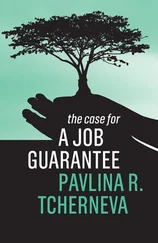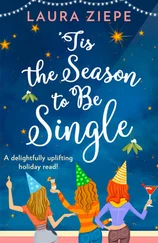“But not too edgy,” said Nora. “They have to be normal. But just not boring.”
I asked the women for examples of what they meant by boring.
“They have to have a sense of humor,” said Nina. “They can’t just be sitting there laughing at something funny I might say. Boring guys aren’t funny, but they think you’re funny.”
“Or the opposite,” said Claire. “They think that if a woman laughs at their jokes, she has a sense of humor. Only a boring person believes that.”
“Or a narcissist!” said Lauren, a fund-raiser for political causes.
“Well, narcissists are boring!” said Olivia, and the group broke into laughter.
I told these women—all reasonably attractive but not drop-dead gorgeous; all interesting but not off-the-charts fascinating—that at a certain point, they might get lonely going on all these dates looking for The Perfect One instead of building a nice life with Some One.
“I’m already lonely, but loneliness is better than boredom,” said Lauren. She’s finds her stable fund-raising job boring at times but it’s often fulfilling, too, so she won’t leave it for her true passion, painting, because it seems too risky.
“So you’ll compromise in your choice of a job but not your choice of a partner?” I asked. “You’re willing to spend eight hours a day in a good enough career instead of leaving it for your true love, being an artist?”
Lauren thought about this for a minute.
“Well, that’s different,” she said. “I’m practical about my career. But to be practical about love? You can’t be practical about a feeling. That seems so … unromantic.”
Just then, a cute-ish guy who seemed to be about thirty walked by and checked out the women. They ignored him. I asked why.
“Too short,” said Olivia, who is 5’2”.
“And what’s up with those glasses?” added Claire, who wears chunky glasses herself.
I wondered if they’d be open to dating a short guy with last year’s style of glasses if he had many of the other qualities they wanted: smart, funny, slightly edgy, kind, successful—and, of course, not boring. How much do first appearances matter?
“I’ve tried that,” Nora said, “but I can’t make myself become attracted to someone. You have to feel it from the beginning. If you aren’t physically attracted when you meet them, you’re always forcing it and it never works.”
At first I was surprised by how readily the twenty-somethings dismissed this cute guy without even considering starting up a conversation to learn more about him. I mean, this wasn’t college, where the playing field was pretty evenly matched in terms of available romantic prospects. This was the adult world, where people were pairing off and getting married, where the pool of single men was getting smaller, where there wasn’t a built-in mechanism for meeting like-minded people the way there’d been in the past.
But then I remembered myself in my twenties, when the possibilities still seemed tantalizingly endless—even if they weren’t.
DESPERATE BUT PICKY
Ah, the difference a decade makes. A few nights later, five single women in their late thirties to early forties met me at the same bar, where I asked the same question: Why is it so hard to find a good guy? I filled them in on the conversation I had with the younger women about boredom and loneliness.
“Check back with them in ten years,” Stephanie, an attractive 39-year-old pediatrician, said. “If they’re holding out for Prince Charming, they’ll be bored and lonely. The job won’t seem as exciting anymore, drinks with the girls will get old, and on holidays, they’ll be hanging out with their married friends and their kids, or their nieces and nephews, which will only make them depressed that they don’t have a family themselves.”
I admitted that I related to those younger women, who wanted to be in a relationship but had a very specific idea of what that guy would have to be like. And as I got older, I explained, my dating life slowly became this lethal paradox: desperate but picky. They knew exactly what I meant.
“That’s so true!” said Liz, a 37-year-old screenwriter. “I want to shake younger women and say, you know, the guy who laughs too loud in public may not love the way you chew raw carrots at dinner parties, but it’s not a deal-breaker for him.”
These women could easily list their former deal-breakers—the reasons they didn’t pursue relationships when they were younger. Here’s what they said:
• “He was very loving but he wasn’t romantic enough. On Valentine’s Day he made a mix tape of my favorite music and gave me an hour-long massage, but all day at work, whenever I saw the flower guy going up the hall delivering flowers to my colleagues, I kept thinking, where are my flowers? I wanted a guy who sent flowers.”
“He brought me flowers, but cheesy ones that just spoke to bad taste—and the sense that I wasn’t worth something more thoughtful.”
“He wasn’t exciting enough. I felt like we were already married, which was nice in a way, but this was supposed to be the courting period.”
“He had long nose hairs and they grossed me out, but I didn’t have the courage to ask him to trim them, so I stopped seeing him.”
“He cried. The first time, I wasn’t thrilled, but okay. The second time, I bailed. I felt he was too weak for me.”
“He was too predictable. Then I started dating guys who always kept me on edge and I never knew what to expect. It was terrible. Now I’d give anything for predictable.”
“I was embarrassed by his voice. Sometimes when he’d answer the phone at my place, people would think he was me, because I have kind of a low voice. But otherwise, he was very masculine. And a great guy.”
“He was too optimistic. He was so cheery all the time, even early in the morning when the alarm went off, and I found that grating. He always found a silver lining—‘The stove broke, let’s go out to dinner!’—but I’d be upset that I had to buy a new stove. I didn’t want to ‘look on the bright side’ all the time. Then I dated a guy who was more cynical and after a while, it depressed me. So I tried to get the optimistic guy back, but he told me I was too pessimistic!”
“He was completely bald except for one of those rings of hair around his head and a little tuft poking up in the front. It was such a turnoff, but I tried to get over it because I really, really liked him. My friends said, ‘He has a nice face, he has a nice body, and besides, most guys lose their hair eventually.’ But he was only thirty-five. I’d always been attracted to guys who had the kind of hair you could run your fingers through. Now I’m lucky if the guys I meet have any hair at all.”
“He thought it was funny to make up strange words, like ‘fabulosa.’ He did this a lot—and in public, too. Once he said to someone at a party, ‘Being a doctor isn’t just one fabulosa after another’ and I was so embarrassed. I broke up with him the next day.”
“He loved me too much. I felt like he was too much of a puppy dog, always looking at me with those adoring eyes. I wanted more of a manly man.”
“He wasn’t refined enough. He couldn’t order off a wine list. He’d never seen Casablanca. I wondered, how can you be thirty-two years old and not have seen that?”
“I just wasn’t feeling it—and now I think, what was I supposed to be feeling? Because, actually, I liked being with him more than any of the guys I felt strong chemistry with before or since.”
Listening to these women, I thought about the reasons I’d passed up guys when I was younger, often sight unseen. One of the most memorable is Tom, a client of my lesbian hairdresser. She’d told me he was a handsome, charming, brilliant chemist and wanted to set us up on a blind date.
Читать дальше












